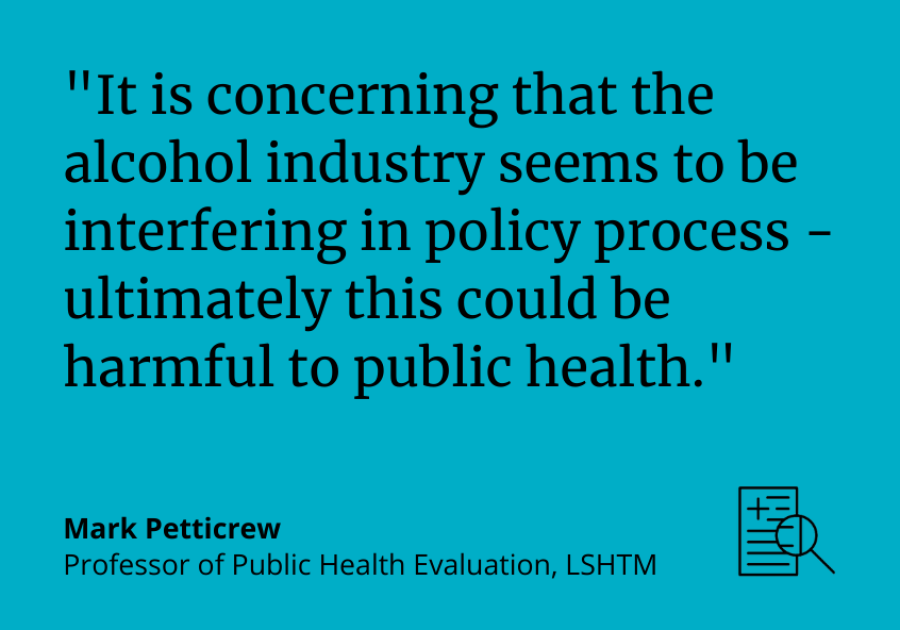Expert comment - alcohol labelling influencing policy discussions at World Trade Organisation
2 February 2022 London School of Hygiene & Tropical Medicine London School of Hygiene & Tropical Medicine https://lshtm.ac.uk/themes/custom/lshtm/images/lshtm-logo-black.png
The study also found that a vast majority of WTO representatives’ comments on these policies were not explicitly referenced as industry demands, despite featuring arguments commonly raised by industry elsewhere, highlighting the need for greater transparency. Mark Petticrew, Professor of Public Health Evaluation at the London School of Hygiene & Tropical Medicine (LSHTM), comments on the study.
Professor Petticrew said: “While there is growing literature on how harmful industries may seek to influence policy to their own ends, there is little evidence when it comes to the alcohol industry and the World Trade Organisation (WTO). This study fills that gap.
“It is concerning that the industry seems to be interfering in policy process - ultimately this could be harmful to public health.
“Evidence suggests the alcohol industry may see accurate and effective labelling as a particular threat to their activities because it's keen to avoid the public being too well-informed about the harms of alcohol consumption. This paper shows some of the arguments used, via WTO members, to do this.
“There is one particular category of arguments which all harmful industries seem to use, in which they make misleading claims about the potential negative consequences of new policies. This has previously been called the 'policy dystopia' approach.
“A bit like 'chicken little' such industries claim that the sky will fall on policymakers heads if new policies are enacted. Evidence shows this is likely to be done frequently by the tobacco, gambling, alcohol and other industries.
“Here, WTO members claimed that the policies were "unnecessary, costly for industry, and an administrative burden for industry, and that alternative, less costly and less trade-restrictive policies should be adopted”.
“This is straight out of the 'policy dystopia' playbook.
“Unfortunately, as the accompanying commentary says, transparency will not help - and may even make things worse by appearing to legitimise such negative influences.
“Instead, or as well, protecting policy processes from harmful actors is crucial.”
LSHTM's short courses provide opportunities to study specialised topics across a broad range of public and global health fields. From AMR to vaccines, travel medicine to clinical trials, and modelling to malaria, refresh your skills and join one of our short courses today.